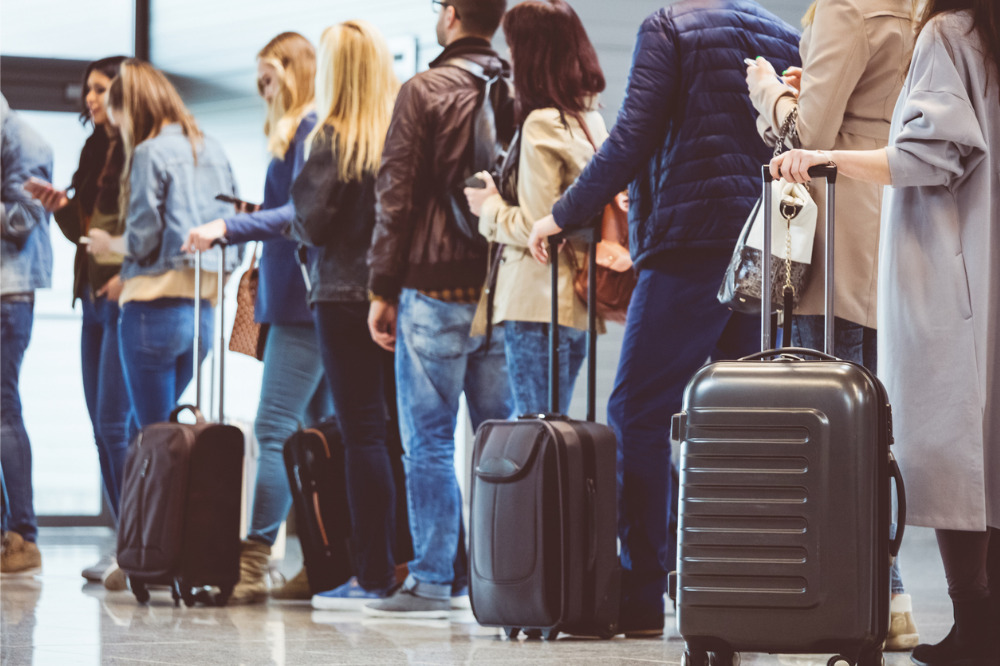Cancel for any reason travel insurance – is it worth having?

The pandemic, however, continues to have a significant impact on people’s travel plans. Of the respondents who did not want to travel, 51% said their reason was related to the coronavirus. About a third of the 2,012 US adults interviewed also admitted they would feel more comfortable traveling if there were safety precautions – including proper sanitation, vaccinated staff, and easy access to rapid tests – in place.
“For the foreseeable future, COVID-19 has dramatically changed the way many of us plan our vacations by adding new layers of complications,” said Sara Rathner, travel expert at NerdWallet. “Have backup plans [ready]… Travel is still full of uncertainty, but that doesn’t mean it’s impossible if you plan for the unexpected. Give yourself time to plan your trip and build flexibility into your bookings.”
Read more: Travel insurance industry tested by coronavirus chaos
In a separate article, the personal finance firm noted how these pandemic-induced complexities have “turned greater attention to trip insurance”, especially in situations resulting in travel cancellation.
But while standard travel insurance “can help get your money back,” according to NerdWallet, it only does so “if you cancel for certain reasons.” For greater flexibility, the firm has advised travelers to take out cancel for any reason (CFAR) coverage.
What is the difference between a regular travel policy and CFAR insurance?
Standard travel insurance policies cover trip cancellations, often providing a full refund if the reason is among those stated in the plan document. These covered reasons typically include illness, injury, or death of the policyholder, a member of their family, or their traveling companion. Cancelled trips due to natural disasters, terrorist attacks, or bankruptcy of the carrier are also covered.
Regular travel insurance, however, does not provide coverage if the policyholder changes their mind about traveling out of fear of getting sick – something that has happened more frequently because of the pandemic.
Read more: Policy changes from the US’s top 10 travel insurers after the coronavirus hit
In such instances, the only way to get protection is by purchasing a “cancel for any reason” policy, which means exactly that – travelers can get a refund for cancelled trips, regardless of what caused their change of heart.
How does CFAR travel insurance work?
A CFAR policy is a time-sensitive add-on that travelers can avail of when they take out their primary travel insurance plans. Not all insurers, however, offer this type of coverage. Certain eligibility requirements also apply.
Travelers are only qualified to upgrade their travel insurance coverage to include cancel-for-any-reason protection within 10 to 21 days after making their initial trip payment. They are also required to insure 100% of their non-refundable trip costs.
Another thing to note is that CFAR insurance does not provide full reimbursement. Payouts vary depending on the insurance company and policies, but typically range from between 50% and 75% of the entire non-refundable travel expenses.
Additionally, a trip cannot be canceled at the last minute. Policyholders must cancel their plans and notify all travel suppliers at least two days – some insurers require a three-day window – before their scheduled departure for coverage to kick in.
Read more: Business travelers believe COVID-19 has hurt their effectiveness – report
How much does cancel-for-any-reason policies cost?
Premium prices for CFAR coverage typically range between 40% and 60% of a standard travel insurance plan, which is about 4% to 8% of the total cost of the trip, according to the US Travel Insurance Association (USTIA). Based on these figures, adding cancel-for-any-reason protection to an insurance policy can set back travelers around 6% to 13% of what they would spend on their trip.
Is it worth taking out cancel-for-any-reason travel insurance?
Because of how the coronavirus pandemic has reshaped travel, NerdWallet recommends that US travelers take out this optional coverage.
“Coronavirus has had a significant impact on past and future travels,” the firm wrote on its website. “Many people have had to cancel trips, and some are hesitant to plan upcoming vacations. Although standard travel insurance can protect you when unforeseen circumstances affect you before or during your trip, the coverage comes with a lot of limitations and exclusions. The best way to protect a non-refundable trip is to purchase a cancel-for-any-reason optional upgrade, as it will allow you to cancel for any reason and still receive a sizable reimbursement.”
Read more: Advising clients amid travel industry collapse is not for the faint of heart
Travel website The Points Guy (TPG) agreed but noted that not all travelers need CFAR protection.
“If your total trip cost is low, you may decide to forego insurance — or the additional CFAR coverage — and self-insure (i.e., eat the non-refundable trip costs if you cancel),” wrote Andrea Rotondo, the firm’s director of operations. “But, if your vacation is expensive, the additional fee for CFAR may feel like a bargain instead of potentially losing thousands of dollars if you have to cancel non-refundable reservations.”





